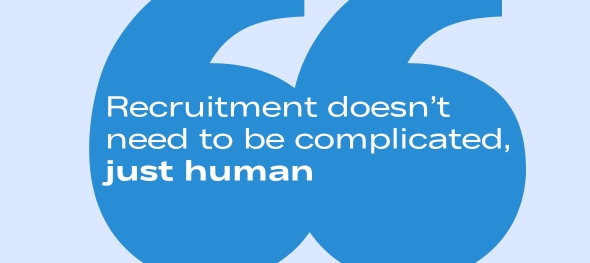 As a family-run recruitment agency that’s worked with local employers and jobseekers for years, we’ve seen our fair share of policy changes shake up the employment landscape. Some come and go without much impact - others genuinely reshape how people hire, work, and build careers.The Government's decision to shift from “day one” unfair dismissal rights to a proposed six-month qualifying period has already sparked strong opinions. But from where we sit - working closely with small businesses and candidates every day - there are some practical considerations worth highlighting.Here’s what this change may mean in practice. A More Balanced Approach for Small BusinessesMany small employers have been nervous about the idea of day-one unfair dismissal rights. For a family-run shop, a small café, or a growing start-up, every hire is a big investment - not just financially, but emotionally too. When you’ve only got a handful of staff, getting the hiring decision wrong can put real pressure on the whole team.By setting a six-month qualifying period, the government has created a workable compromise. Employers still need to treat people fairly - and most genuinely do - but they now have a realistic timeframe to assess whether someone is the right fit without immediately worrying about tribunal risks.By setting a six-month qualifying period, the Government has introduced a compromise that aligns more closely with how most businesses already manage probation. Employers will still need to treat people fairly (and most genuinely do) but they now have a more practical timeframe to make sure the role and individual are the right fit.This will, in our view, make some business owners more confident about hiring again, especially after years of economic uncertainty.A Win for Jobseekers Too — Especially Compared to the Old Two-Year RuleWhile six months isn’t as protective as day one, it’s still a significant improvement on the previous two-year requirement.Many people - especially those ...
As a family-run recruitment agency that’s worked with local employers and jobseekers for years, we’ve seen our fair share of policy changes shake up the employment landscape. Some come and go without much impact - others genuinely reshape how people hire, work, and build careers.The Government's decision to shift from “day one” unfair dismissal rights to a proposed six-month qualifying period has already sparked strong opinions. But from where we sit - working closely with small businesses and candidates every day - there are some practical considerations worth highlighting.Here’s what this change may mean in practice. A More Balanced Approach for Small BusinessesMany small employers have been nervous about the idea of day-one unfair dismissal rights. For a family-run shop, a small café, or a growing start-up, every hire is a big investment - not just financially, but emotionally too. When you’ve only got a handful of staff, getting the hiring decision wrong can put real pressure on the whole team.By setting a six-month qualifying period, the government has created a workable compromise. Employers still need to treat people fairly - and most genuinely do - but they now have a realistic timeframe to assess whether someone is the right fit without immediately worrying about tribunal risks.By setting a six-month qualifying period, the Government has introduced a compromise that aligns more closely with how most businesses already manage probation. Employers will still need to treat people fairly (and most genuinely do) but they now have a more practical timeframe to make sure the role and individual are the right fit.This will, in our view, make some business owners more confident about hiring again, especially after years of economic uncertainty.A Win for Jobseekers Too — Especially Compared to the Old Two-Year RuleWhile six months isn’t as protective as day one, it’s still a significant improvement on the previous two-year requirement.Many people - especially those ... At Uxbridge Employment Agency, our tagline has always been “people in a people business”, as we’ve always believed recruitment doesn’t need to be complicated — it just needs to be human.Recently, one of our longstanding clients sent us a testimonial that reminded us why we do what we do. Their words were generous, but more importantly, they captured the essence of what makes recruitment partnerships thrive.Here’s what stood out and why it matters a great deal to us, as their words encapsulated the service we aim to offer; Simplicity Over Complexity“The thing with you guys, it’s like calling a mate to ask for help. There are no complicated processes, no one-hour calls to qualify the role, and I’m not passed to someone miles away I’ve never spoken to.”This really resonated with us because we’ve seen how recruitment can become over-engineered. Many agencies put clients through hoops before any progress is made — long qualification calls, multiple handovers, and unnecessary steps that take time but don’t add value.For us, the process has always been simple: pick up the phone, have an open conversation, and let us get to work. Our clients trust us because not only have we had over 45 years local experience, but we take the time to visit them and understand their business. This means they don’t need to re-explain everything every time and that simplicity saves time, removes friction, and lets us focus on what matters most — finding the right people! Approachability Matters“Guaranteed to take the call in a friendly manner… Nothing is too much trouble, even if it’s just a question about the market in Uxbridge.”Recruitment isn’t just about jobs — it’s about relationships. Sometimes our clients call with an urgent vacancy, but often they just want advice: a sense check on salaries, insight into the candidate market, or a second opinion on their plans.We take pride in being approachable. There’s no “meter running” when you pick up the phone to us. Our role is to be a trusted ...
At Uxbridge Employment Agency, our tagline has always been “people in a people business”, as we’ve always believed recruitment doesn’t need to be complicated — it just needs to be human.Recently, one of our longstanding clients sent us a testimonial that reminded us why we do what we do. Their words were generous, but more importantly, they captured the essence of what makes recruitment partnerships thrive.Here’s what stood out and why it matters a great deal to us, as their words encapsulated the service we aim to offer; Simplicity Over Complexity“The thing with you guys, it’s like calling a mate to ask for help. There are no complicated processes, no one-hour calls to qualify the role, and I’m not passed to someone miles away I’ve never spoken to.”This really resonated with us because we’ve seen how recruitment can become over-engineered. Many agencies put clients through hoops before any progress is made — long qualification calls, multiple handovers, and unnecessary steps that take time but don’t add value.For us, the process has always been simple: pick up the phone, have an open conversation, and let us get to work. Our clients trust us because not only have we had over 45 years local experience, but we take the time to visit them and understand their business. This means they don’t need to re-explain everything every time and that simplicity saves time, removes friction, and lets us focus on what matters most — finding the right people! Approachability Matters“Guaranteed to take the call in a friendly manner… Nothing is too much trouble, even if it’s just a question about the market in Uxbridge.”Recruitment isn’t just about jobs — it’s about relationships. Sometimes our clients call with an urgent vacancy, but often they just want advice: a sense check on salaries, insight into the candidate market, or a second opinion on their plans.We take pride in being approachable. There’s no “meter running” when you pick up the phone to us. Our role is to be a trusted ... It’s no secret that August is one of the quietest months in the business calendar. Offices thin out, HR decision-makers head off on holiday, and inboxes are set to “out of office.” But while the world slows down, the savviest hiring managers see this lull as a strategic opportunity.Here’s why making a move now (rather than waiting until the September rush), can give you the edge. 1. Less Competition = First Pick of TalentCome September, the hiring market floods back into action. Everyone is chasing the same talent pool at the same time - and by then, some of the best candidates may already be gone.By starting your search in August, you avoid the crowd and increase your chances of securing the right person before others have even got going. 2. You’ll Get More Time (and Attention) from Your RecruiterRecruitment agencies (ours included) tend to have more bandwidth in August, meaning you get more time dedicated to your search. We’re able to dig deeper into shortlists, move quicker on promising CVs, and really tailor your campaign - all without the usual pile-on that comes in autumn. 3. Candidates Are Still Looking — And Many Are Ready for a September StartNot everyone is on a beach in August. Plenty of excellent candidates are actively looking, especially those: Coming to the end of a contract Relocating over the summer Exploring post-bonus moves Looking to leave before the next quarter begins By engaging them now, you’re in a stronger position to line up interviews and offers for an early September start. 4. You’ll Avoid the September ScrambleIf you've ever tried hiring in September, you’ll know how hectic it gets. Roles build up, internal workloads increase, and hiring decisions are expected yesterday.Starting in August means you: Lock in your shortlist calmly Avoid rushed decisions Onboard early and hit the ground running Final Thought: The Smartest Hires Start EarlyAugust may not be the obvious time to recruit - but that’s exactly why it works. While others hit ...
It’s no secret that August is one of the quietest months in the business calendar. Offices thin out, HR decision-makers head off on holiday, and inboxes are set to “out of office.” But while the world slows down, the savviest hiring managers see this lull as a strategic opportunity.Here’s why making a move now (rather than waiting until the September rush), can give you the edge. 1. Less Competition = First Pick of TalentCome September, the hiring market floods back into action. Everyone is chasing the same talent pool at the same time - and by then, some of the best candidates may already be gone.By starting your search in August, you avoid the crowd and increase your chances of securing the right person before others have even got going. 2. You’ll Get More Time (and Attention) from Your RecruiterRecruitment agencies (ours included) tend to have more bandwidth in August, meaning you get more time dedicated to your search. We’re able to dig deeper into shortlists, move quicker on promising CVs, and really tailor your campaign - all without the usual pile-on that comes in autumn. 3. Candidates Are Still Looking — And Many Are Ready for a September StartNot everyone is on a beach in August. Plenty of excellent candidates are actively looking, especially those: Coming to the end of a contract Relocating over the summer Exploring post-bonus moves Looking to leave before the next quarter begins By engaging them now, you’re in a stronger position to line up interviews and offers for an early September start. 4. You’ll Avoid the September ScrambleIf you've ever tried hiring in September, you’ll know how hectic it gets. Roles build up, internal workloads increase, and hiring decisions are expected yesterday.Starting in August means you: Lock in your shortlist calmly Avoid rushed decisions Onboard early and hit the ground running Final Thought: The Smartest Hires Start EarlyAugust may not be the obvious time to recruit - but that’s exactly why it works. While others hit ... As summer approaches and many businesses navigate ongoing uncertainty, the demand for temporary workers continues to rise - and it’s not hard to see why. From SMEs to larger organisations, teams across the UK are turning to temps to help manage workload peaks, cover absences, and provide short-term flexibility at a time when permanent hiring is often stalled.We’ve seen this trend play out first-hand as local businesses come to us for fast, reliable temporary support — not just for holiday cover, but as a strategic response to wider hiring challenges.So, what’s driving the surge in temp demand?1. Hiring Freezes & Budget ConstraintsMany companies are still facing internal sign-off delays, spending reviews, or formal hiring freezes — particularly in mid-sized and larger organisations. Even when there’s a business case for extra resource, getting permanent headcount approved can be slow or blocked altogether.Temps provide a way around that. They allow businesses to bring in much-needed help without committing to a long-term hire or navigating layers of red tape.2. Workloads Aren’t Slowing DownDespite caution on the hiring front, the work keeps coming. From customer demand and internal projects to compliance deadlines and seasonal peaks, businesses still need to deliver — and often with fewer people than they’d like.Temporary workers are a practical, scalable way to plug those gaps quickly and keep teams moving.3. The Summer SqueezeWith school holidays just around the corner, many teams are about to feel the impact of reduced headcount even more. Summer absence cover — particularly in office-based roles — is often underestimated, but when multiple people are away at once, the effect on service levels, morale, and output can be significant.Booking holiday cover early ensures the best availability — especially for specialist or part-time needs.4. Temp-to-Perm is Becoming the New NormalA growing number of companies are using temporary contracts as a low-risk way to ...
As summer approaches and many businesses navigate ongoing uncertainty, the demand for temporary workers continues to rise - and it’s not hard to see why. From SMEs to larger organisations, teams across the UK are turning to temps to help manage workload peaks, cover absences, and provide short-term flexibility at a time when permanent hiring is often stalled.We’ve seen this trend play out first-hand as local businesses come to us for fast, reliable temporary support — not just for holiday cover, but as a strategic response to wider hiring challenges.So, what’s driving the surge in temp demand?1. Hiring Freezes & Budget ConstraintsMany companies are still facing internal sign-off delays, spending reviews, or formal hiring freezes — particularly in mid-sized and larger organisations. Even when there’s a business case for extra resource, getting permanent headcount approved can be slow or blocked altogether.Temps provide a way around that. They allow businesses to bring in much-needed help without committing to a long-term hire or navigating layers of red tape.2. Workloads Aren’t Slowing DownDespite caution on the hiring front, the work keeps coming. From customer demand and internal projects to compliance deadlines and seasonal peaks, businesses still need to deliver — and often with fewer people than they’d like.Temporary workers are a practical, scalable way to plug those gaps quickly and keep teams moving.3. The Summer SqueezeWith school holidays just around the corner, many teams are about to feel the impact of reduced headcount even more. Summer absence cover — particularly in office-based roles — is often underestimated, but when multiple people are away at once, the effect on service levels, morale, and output can be significant.Booking holiday cover early ensures the best availability — especially for specialist or part-time needs.4. Temp-to-Perm is Becoming the New NormalA growing number of companies are using temporary contracts as a low-risk way to ...Learn more about us or download any documentation:
This website uses cookies. Read our cookie policy for more information. By continuing to browse this site you are agreeing to our use of cookies.
This is a responsive, accessible modal. Replace this content with whatever you like.

